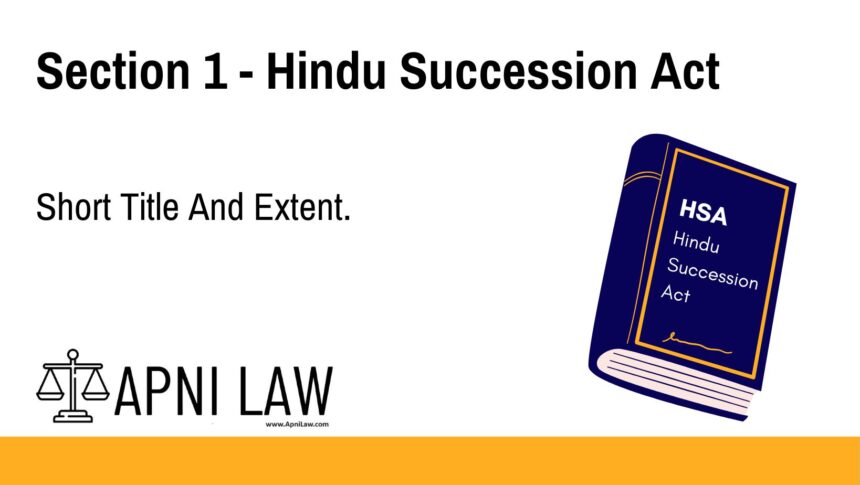Code: Section 1 – Hindu Succession Act
(1) This Act may be called the Hindu Succession Act, 1956.
(2) It extends to the whole of India.
Explanation of Section 1 – Hindu Succession Act
Section 1 of the Hindu Succession Act, 1956 lays down two fundamental aspects of the legislation:
- The official title of the law is the “Hindu Succession Act, 1956”.
- It applies throughout the entire territory of India.
This section serves as the introductory clause of the Act, confirming its nationwide jurisdiction. The Act governs matters of intestate succession among Hindus, Buddhists, Jains, and Sikhs, unless otherwise specified.
Note: Though it extends to the whole of India, the application to Jammu and Kashmir has been ensured after the abrogation of Article 370, making the Act applicable there as well.
Illustration
Imagine a Hindu man dies without making a will in Maharashtra. His family members—wife, son, and daughter—inherit his property under the provisions of the Hindu Succession Act, 1956. The applicability of the Act is confirmed by Section 1, which ensures that it governs such cases across all Indian states.
Common Questions & Answers
1. What is the short title of the Hindu Succession Act?
The short title is “Hindu Succession Act, 1956”.
2. To which regions does the Act apply?
It extends to the whole of India, including all states and union territories.
3. Does the Hindu Succession Act apply to Jammu & Kashmir?
Yes, after constitutional changes in 2019, the Act is applicable in Jammu & Kashmir as well.
4. Who does the Hindu Succession Act apply to?
It applies to Hindus, including Buddhists, Jains, and Sikhs, unless excluded by custom or personal law.
Conclusion
Section 1 of the Hindu Succession Act sets the foundation for the Act’s application and title. Though simple, it establishes that the Act is a central law applicable throughout India, impacting the lives of millions in cases of inheritance and succession.
For more detailed legal insights, visit ApniLaw today!








